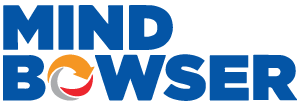In healthcare, secure patient data management is more than a priority—it’s a necessity. The growing reliance on digital systems has made protecting sensitive health information a critical concern. Regulatory frameworks such as HIPAA in the United States and GDPR in Europe establish stringent guidelines to safeguard patient data, ensuring privacy and security at every step. Non-compliance can result in severe penalties and damage to an organization’s reputation.
Healthcare compliance solutions are important in helping organizations manage these requirements while maintaining secure data-handling practices. The global healthcare compliance software market, estimated to reach USD 11.88 billion by 2034, experienced growth from USD 3.35 billion in 2024 to USD 3.80 billion in 2025. By integrating advanced compliance solutions, organizations can address regulatory challenges, improve data security, and ensure a higher standard of patient care.
➡️ Key Steps to Develop Healthcare Compliance Solutions
In an era of increasing cyber threats and stringent regulations, healthcare organizations must prioritize secure patient data management. Developing effective healthcare compliance solutions involves understanding complex regulatory requirements, creating customized frameworks, and ensuring the seamless integration of modern tools with existing systems.
Below are actionable steps to guide the development process:

🟢 Understand Regulatory Requirements
A strong foundation for healthcare compliance begins with understanding HIPAA, HITECH, and GDPR regulations. Each regulation has specific requirements for patient data protection and access control, and reporting. Collaborating with legal experts ensures compliance solutions meet these standards from the start.
🟢 Conduct a Risk Assessment
Before designing compliance management software, conduct a thorough risk assessment to identify vulnerabilities in data storage, access, and sharing. This helps prioritize areas that require immediate attention and ensures that the solution addresses the most critical risks.
🟢 Design Secure Data Management Systems
Healthcare compliance software must prioritize data security with features like encryption, role-based access, and multi-factor authentication. Integrating these features protects patient information while maintaining authorized access. Additionally, real-time monitoring and alert systems can help identify and respond to breaches quickly.
🟢 Automate Compliance Processes
Manual compliance tracking can lead to errors and inefficiencies. Automating audit logging, policy enforcement, and incident reporting processes simplifies compliance management. Compliance management software such as Vanta's automated security and compliance solutions streamlines tasks like employee training tracking, policy updates, and document management to save time and reduce errors.
🟢 Ensure Interoperability and Scalability
Compliance solutions should be compatible with existing healthcare systems to minimize disruptions during implementation. Building scalable systems ensures that the software can accommodate future growth, whether it’s an expansion in the user base or regulatory updates.
🟢 Prioritize User-Friendly Design
Compliance tools are used by different stakeholders, including administrative staff, healthcare providers, and IT teams. A user-friendly interface improves adoption rates and minimizes errors during usage. Clear workflows, intuitive dashboards, and accessible training materials can support effective implementation.
➡️ Challenges in Developing Compliance Solutions
1. Keeping Up with Evolving Regulations
Healthcare compliance is something that needs constant upgrades. Regulations are frequently updated to address emerging threats and industry practices. This ever-changing landscape makes it challenging for developers to ensure healthcare compliance software solutions remain current. A lack of awareness or delayed updates could lead to non-compliance, resulting in financial penalties and reputational damage.
2. Integrating Legacy Systems with New Compliance Software
Many healthcare organizations rely on legacy systems that don't support modern compliance needs. Integrating new compliance management software with these older systems is often complex and time-consuming. Developers must create solutions that work seamlessly with existing systems, ensuring uninterrupted workflows and data consistency while meeting regulatory requirements.
3. Balancing Security with Patient Experience
Compliance software must protect sensitive patient information without creating friction for users. Overly strict security measures can slow down operations, frustrating healthcare staff. On the other hand, prioritizing usability without adequate safeguards can lead to vulnerabilities. Striking this balance requires a thoughtful design that considers security and ease of use.
This quote is from one of our webinars. To learn more, watch our webinar or get the link here.
Highlighted that patient perception plays an important role in the adoption of healthcare solutions. To gain trust, organizations must overcommunicate their safety measures and demonstrate a strong commitment to protecting patient data.
Peter Niemi, CEO of Recovery Plus
4. Managing Costs for Scalable Solutions
Building scalable healthcare compliance software can be expensive, especially for smaller healthcare providers. Developers face the challenge of creating cost-effective solutions without compromising quality or security. Finding innovative ways to reduce development and operational costs while ensuring scalability is crucial for meeting the needs of diverse healthcare organizations.
5. Addressing Data Interoperability Issues
Healthcare organizations collect and store data in various formats across multiple systems. Ensuring compliance software can work with this diverse data ecosystem is essential but often complicated. Developers must create solutions that support data interoperability, enabling secure sharing and management of information without risking non-compliance.

Our client, a healthcare organization managing patient data, faced challenges in data integration, security, and operational efficiency. By implementing advanced technologies, we streamlined patient care, automated processes, and ensured real-time updates, all while adhering to industry standards. AI-driven solutions enhanced performance, reduced manual work, and ensured secure data exchanges, improving patient outcomes and care delivery efficiency.
➡️ Tools and Technologies for Developing Compliance Solutions
Building healthcare compliance software solutions requires selecting the right tools and technologies. Solutions must include data encryption, role-based access, and audit trails to meet regulatory demands.
Cloud platforms, API integrations, and secure database management systems create a solid foundation for compliance management software. Developers often rely on frameworks like AWS, Microsoft Azure, and Google Cloud, which offer built-in security features that can simplify compliance workflows.
🔷 Popular Compliance Management Software and Their Features
Here are some widely used compliance management software solutions that healthcare organizations rely on:
🔹ZenGRC
ZenGRC offers an easy-to-navigate interface for managing compliance requirements. It provides real-time insights into gaps in adherence and automates repetitive tasks like audit reporting.
🔹Hyperproof
Hyperproof simplifies compliance tracking with pre-built HIPAA, SOC 2, and GDPR frameworks. Its collaboration features make it easier for teams to stay aligned on compliance goals.
🔹VComply
VComply is known for its user-friendly platform that allows organizations to assign, monitor, and document compliance tasks. Its real-time dashboards help track progress effortlessly.
🔹LogicGate
LogicGate focuses on customizable workflows and risk management. It allows organizations to streamline compliance processes while aligning with their specific needs.
AI and machine learning are transforming how organizations handle compliance monitoring. These technologies analyze vast amounts of data to identify potential violations, flag anomalies, and predict future risks.
How Mindbowser Can Help Develop Healthcare Compliance Solutions for Secure Patient Data Management
Developing healthcare compliance solutions for secure patient data management requires a strategic approach focused on regulatory adherence, risk mitigation, and user-friendly design. By integrating robust security measures, automating compliance processes, and ensuring system scalability, organizations can protect sensitive information while improving operational efficiency.
Mindbowser specializes in creating healthcare compliance solutions that prioritize secure patient data management. With expertise in HIPAA, GDPR, and other regulatory frameworks, we develop tailored software that ensures data security, privacy, and seamless integration with healthcare systems.
Our team focuses on encryption protocols, access control mechanisms, and real-time monitoring to mitigate risks and maintain compliance. Whether you need custom healthcare applications, audit-ready documentation, or advanced security features, Mindbowser offers end-to-end support to help you safeguard sensitive patient information while streamlining operations.
Frequently Asked Questions
- What are the key compliance regulations in healthcare?
Healthcare organizations must adhere to regulations like HIPAA, GDPR, and HITECH to protect patient data and maintain privacy.
- How do I ensure data security in compliance solutions?
Implement encryption, access controls, and regular security audits to safeguard patient information and prevent breaches.
- What features should be included in a compliance solution?
Key features include audit trails, secure communication channels, role-based access, and real-time monitoring.
- Why is testing important for healthcare compliance solutions?
Thorough testing identifies vulnerabilities, validates compliance with regulations, and ensures robust system performance.

Manisha Khadge, CMO Mindbowser
Manisha Khadge, recognized as one of Asia’s 100 power leaders, brings to the table nearly two decades of experience in the IT products and services sector. She’s skilled at boosting healthcare software sales worldwide, creating effective strategies that increase brand recognition and generate substantial revenue growth.
Let's Get In Touch
One thing that really stood out to me is the culture and values of the Mindbowser team.

Sanji Silva
Chief Product Officer, Mocingbird
I am so glad I worked with Mindbowser to develop such an Impactful Mobile app.

Katie Taylor
Founder and CEO, Child Life On Call
Mindbowser was an excellent partner in developing my fitness app.

Jirina Harastova
Founder, Phalanx Ubiquity
The team understood the challenges faced by both CME administrators and clinicians and translated that understanding into building the platform. We're totally impressed by their deep domain and technology expertise in creating a solution that empowers both administrators and medical professionals.

Ian Modam
CEO & Co-Founder, Mocingbird
Mindbowser team’s expertise and dedication has been instrumental in improving our platform’s efficiency. We have observed a reduction in average delivery time since the integration. Kudos to the wonderful team!!!!

Anish J. Shah
Founder, BirthModel
Mindbowser built both iOS and Android apps for Mindworks, that have stood the test of time. 5 years later they still function quite beautifully. Their team always met their objectives and I'm very happy with the end result. Thank you!

Bart Mendel
Founder, Mindworks
Some of the features conceived, implemented, and designed by the Mindbowser staff are amongst our most popular features.

Matthew Amsden
CEO, Proofpilot
Mindbowser is one of the reasons that our app is successful. These guys have been a great team.

Dave Dubier
Founder & CEO, MangoMirror
The Mindbowser team's professionalism consistently impressed me. Their commitment to quality shone through in every aspect of the project. They truly went the extra mile, ensuring they understood our needs perfectly and were always willing to invest the time to deliver exactly what we envisioned.

Spencer Barns
Chief Technology Officer, New Day Therapeutics
Kudos for all your hard work and diligence on the Telehealth platform project. You made it possible.

Joyce Nwatuobi
CEO, ThriveHealth
Post a comment Cancel reply
Related Posts
FDA Approach on the Regulation of Artificial Intelligence in Healthcare
Advances in AI are changing healthcare, offering transformative opportunities in diagnostics, treatment planning, drug development,…
Ensuring HIPAA Compliance in Healthcare Application Testing: Important Considerations
The Health Insurance Portability and Accountability Act (HIPAA) sets strict standards for protecting sensitive patient…
Everything You Should Know About the HTI-1 Final Rule
Imagine a world where 70% of critical patient data is inaccessible to healthcare providers when…
Building a HIPAA-Compliant Healthcare App with Flutter
In the world of healthcare, building applications that handle sensitive patient data comes with a…










